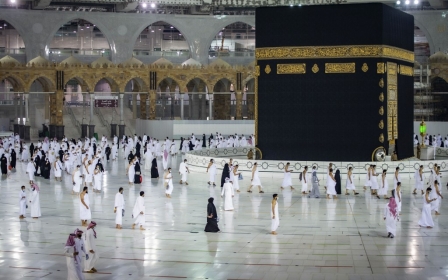Coronavirus: Oman introduces two-week night curfew after uptick in cases

Oman ordered a two-week curfew following an uptick in coronavirus cases, the committee responsible for the Gulf state's Covid-19 response said.
The curfew will take place between 11 October and 24 October, and will bar people from being out between the hours of 8pm and 5am, the committee said in a statement on Friday.
"In the light of the current situation regarding the rise of infections in the country, it has been decided to impose the curfew to protect members of the public and limit the spread of the virus," the committee said.
"Names and pictures of offenders who violate the instructions will be published in the media."
The two-week restrictions will also see all beaches in Oman closed as a precaution.
New MEE newsletter: Jerusalem Dispatch
Sign up to get the latest insights and analysis on Israel-Palestine, alongside Turkey Unpacked and other MEE newsletters
Oman, a country of 4.7 million people, saw 2,678 new cases and 50 deaths during the first week of October, according to the World Health Organisation.
With more than 19,000 cases per million people, the country is among the top of those affected by the pandemic in the region, though its death toll, at 935, remains low in comparison.
Omani authorities have said the recent rise in infections came as people failed to take health precautions seriously.
Muscat previously imposed a curfew and banned travel between its governorates from 25 July to 8 August, which included the Muslim Eid al-Adha holiday. At the time, the Health Ministry described the measure as a "total lockdown".
Middle East Eye delivers independent and unrivalled coverage and analysis of the Middle East, North Africa and beyond. To learn more about republishing this content and the associated fees, please fill out this form. More about MEE can be found here.




